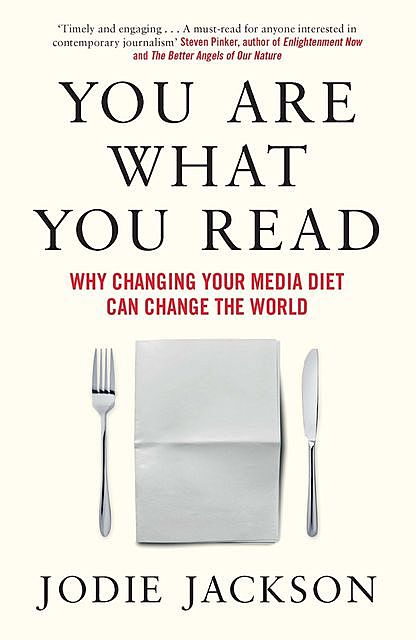You Are What You Read
Ova knjiga je trenutno nedostupna
163 štampane stranice
- Prvi put objavljeno
- 2019
- Godina izdavanja
- 2019
Utisci
- Александр Карясовje podelio/la utisakпре 4 године👍Vredna čitanja
Citati
- Sofiaje citiraoпре 3 годинеThis is because the mind tricks us into thinking that the more we hear about something, the more prevalent it is.
- Sofiaje citiraoпре 3 године1. The person or people who see the news happen – they see this event selectively; some things are noticed and some are not.
2. The reporter who talks to the initial source(s). They decide which facts to pass along, how to shape the story and which parts to emphasise.
3. The editor, who receives the story and decides to cut, add, change or leave as is.
4. The aggregated broadcast channels. Some news stories make it to the big screen; completed and submitted by editors, these news stories are now at the mercy of the broadcaster, who decides which ones to show on the national news channel.
5. If the story goes overseas, further gatekeepers will decide if it is worthy of their time, regardless of whether it is broadcast or print. - Sofiaje citiraoпре 3 годинеthe news ‘must hold a mirror behind the nation and the world
fb2epub
Prevucite i otpustite datoteke
(ne više od 5 odjednom)


